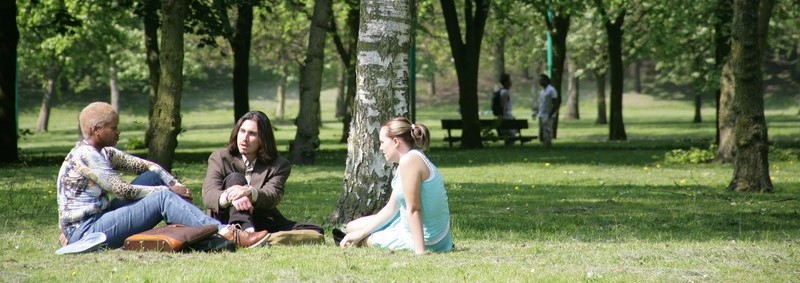When I look around I see one thing: everyone using their phones. Why? What is our obsession with our smartphones? The funny thing is, having asked those questions I looked straight back at my iPhone. In that moment, I thought, ‘what would it be like if I didn’t have my smartphone?’
Background
Apple, Samsung, HTC, LG, Nokia, Windows and Blackberry. The names of these companies and their phone models will forever be immortalised. They are so important to us that celebrities have even been photographed paying more attention to their hand-held devices than their own children.
They are so important that we are willing to debate with each other to answer the simple question: who is better, Apple, or Samsung? Our smartphone obsession has resulted in companies capitalising on our constant need to be connected in the ‘always online’ culture, advancing mobile technology to the point where they have better graphics, RAM and CPUs than some computers and laptops.
Did you know that students are likely to take out insurance on their phone but not their student homes? Or that high-school teachers spend more time confiscating phones in class than any other item?
It should come as no surprise at all really – emails, social media, calendars, entertainment, music, videos, cameras and a million other useful items all packed away in a slick combination of metal, plastic and glass that slides neatly into our pocket. It’s more than just a phone: it’s an extension of the very person you are, and to others, it’s an addiction. I have to admit – I am an addict. I can’t go anywhere without it.
So, what would happen if I stopped using my smartphone for a week?
I was only allowed to use the ‘Messages’ and ‘Phone’ feature and nothing else, purely for work purposes. If I wanted to set an alarm, I’d have to use a clock. To check my emails, I’d have to log on to a computer. If I wanted to listen to music, then I’d have to use my iPod, and so on.
The Result
The process wasn’t easy. I couldn’t believe how hard it was to simply stop using a smartphone for a short amount of time. Even sitting in Clifford Whitworth Library and having to get up and move 20 steps to a computer simply to check my emails was the most annoying thing. Especially because I have five email addresses: each one requiring a different password and a second verification code.
Monday to Wednesday and Sunday were the hardest of days, I was free in the evenings and as a result didn’t have a lot to do. It was so tempting to just get out my mobile and play a game or visit social media, but like the above, I had to go to my room and login to all my social media accounts. I usually don’t spend a lot of time on social media in large chunks, as instead I just check here and there, but I wasn’t willing to constantly login and logout. The remaining days weren’t so bad – I have a lot of lectures on Thursdays and Friday so it just seemed like a normal day.
Throughout the time, I had more conversations, I was more spontaneous and simply got up and went out with friends. It was weird. I knew I would feel some withdrawal symptoms, humans are of course creatures of habit after all, but I didn’t know I would feel both positively and negatively about it.
Throughout the experience, I learned that I need to stop being so dependent on my phone, because at the end of the day it’s not really doing what it was designed to do. Mobile phones were designed to bring people together, by helping us make plans and capture and share our best memories. For me, it doesn’t really do any of those things – it isolates me more. I would sit in a room with all of my housemates and instead of talking, we would be silent and have our eyes fixated on our phones.
I’m glad I came to that conclusion and happy that I tried out my little experiment. The three words ‘put it down’ will always be in the back of my mind moving forward.
Now if only I could do the same for coffee!





I did this for one day by accident, when I left my phone at home. It did make me realise how dependant I was and how much of it was actually useful. Such an interesting read and I have learnt how to utilise my battery life efficiently ?